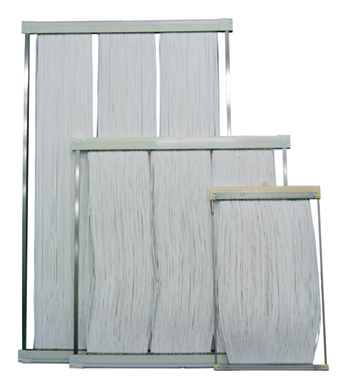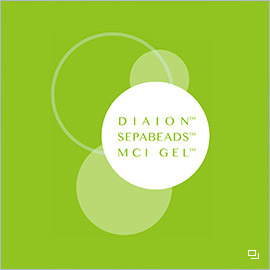Separation Materials Dept.
The uses of ion exchange resins do not end with industrial water purification and softening. Rather, they are also used in various applications such as pharmaceutical and food purification, wastewater treatment, and the production of ultra-pure water for semiconductor manufacturing. Mitsubishi Chemical's DIAION™ ion exchange resins address these diverse fields and applications with products including cation-exchange resins, anion-exchange resins, chelating resins, and synthetic adsorbent resins.
- Product inquiry
13products.
[Close all]
Hollow Fiber Membrane, STERAPORE™
[Close all]

ZEBREX™ is cutting-edge zeolite membrane dehydration process, which can dehydrate solvents under a wide range of water concentration and pH conditions, and is a one-pass continuous process rather than a batch process.
ex.) Ethanol, Isopropanol, Acetone, Methyl Ethyl Ketone, Tetrahydrofuran, etc.
Small Diameter Synthetic Adsorbents for Chromatographic Separation, DIAION™ HP series SEPABEADS™ SP series
[Close all]
Capable of advanced separation and purification in chromatographic separation of products thanks to smaller particle size than DIAION™ HP20 and SP207, which have excellent adsorption properties. This series consists of HP20SS, SP20SS with smaller particle size, and SP207SS.
Amphoteric Ion-Exchange Resin, DIAION™ series
[Close all]
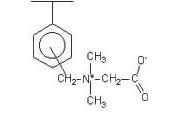
DIAION™ AMP03 is an amphoteric ion-exchange resin with a quaternary ammonium group and carboxy group incorporated into the crosslinked polystyrene backbone. Thanks to uniform 260 µm beads size, AMP03 realizes sharp elution peak in the separation of electrolytes from non-electrolytes, between electrolytes (sodium chloride and sodium sulfate), etc.
Packing materials for HPLC, MCI GEL
[Close all]
MCI GEL™ packing materials for high performance liquid chromatography are synthetic polymer products for use as ion exchange resins, non-functional reverse-phase support, hydrophilic porous gels, etc. Particle size ranges from 4µm to more than 100µm. Quantities for analytical applications up to production-scale fractionation are available. We are prepared to supply materials such as ion exchange resins for glycoamino acid analysis, polymer adsorbent for reverse-phase chromatography, various column packings for protein separation, etc.
HPLC packed columns, MCI GEL
[Close all]
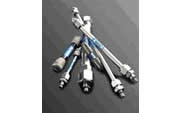
These are HPLC separation columns that achieve high-resolution separations utilizing our proprietary column packing technology that features the high-quality MCI™ GEL packing material. MCI GEL packed columns serve application fields such as amino acid analysis, protein analysis, common organic compound analysis, and ion chromatography.
The Synthetic Adsorbents are cross-linked polymer spheres which provide specific surface area of 500-1200m2/dry-g with their porous structure. Available products include the aromatic-based HP series, the aromatic-based SP series, and the methacrylate ester-based HP2MGL. They are used for the adsorption purification of peptides, proteins, polyphenols, cephalosporin C, etc. as well as for the removal of bitter-tasting substances from fruit juices.
Chelating resins, DIAION™ CR series
[Close all]
A chelating resin has a functional group that is capable of forming a chelate (complex) with a metal ion. The specific metals that can form chelates with the functional group can be captured. In the DIAION™ CR Series, there are three product types: (1) for common metals -- DIAION™ CR11 with the iminodiacetic acid functional group, (2) for metals other than alkali metals (Na, K, etc.) or alkaline earth metals (Ca, Mg, etc.) -- DIAION™ CR20 with the polyamine group, and (3) for selectively capturing boric acid --- CRB03 and CRB05 with the methylglucamide group.
The low-odor, low-leachable anion exchange resin reduces the release of total organic carbon (TOC) and amines to prevent offensive odors.
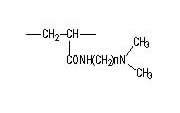
The weakly basic anion exchange resins use either a polystyrene or polyacrylic ester frame and a primary-ternary amino group as the functional group. Although the anion of a salt like NaCl or Na2SO4 cannot be exchanged, the exchange of an anion of a mineral acid such as HCl and H2SO4, or the salt of a weak base like NH44Cl can be carried out.
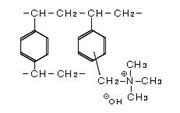
An amino functional group is incorporated into the anion exchange resin enabling the exchange of anions like the Cl- ion and the SO4-- ion. Strongly basic anion exchange resins and weakly basic anion exchange resins can be defined according to the basic strength of the amino functional group.
The ion exchange resin that has a quaternary ammonium group is strongly alkaline and dissociates just like NaOH and KOH. Therefore it is called a strongly basic anion exchange resin.
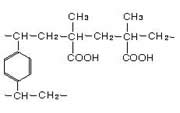
The weakly acidic cation exchange resins have the carboxylic acid group (-COOH) as the exchange group. There are two kinds --- a methacrylic acid type and an acrylic acid type. The acrylic acid weakly acidic cation exchange resin is used for processing water with high carbonate hardness. The methacrylic acid type is used for purification of antibiotics and amino acids.
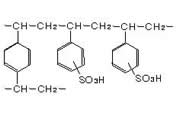
The strongly acidic cation exchange resins are bead-like products which have a sulfonic acid group in the cross-linked styrene frame. They can be used across the full pH range (0-14), and are relatively stable to temperature, even withstanding high temperatures of 100-120℃. They are used in a wide variety of fields including water purification, water softening, wastewater treatment, purification of pharmaceuticals and food, and catalysis.
Technology Information
- Product Finder
-

